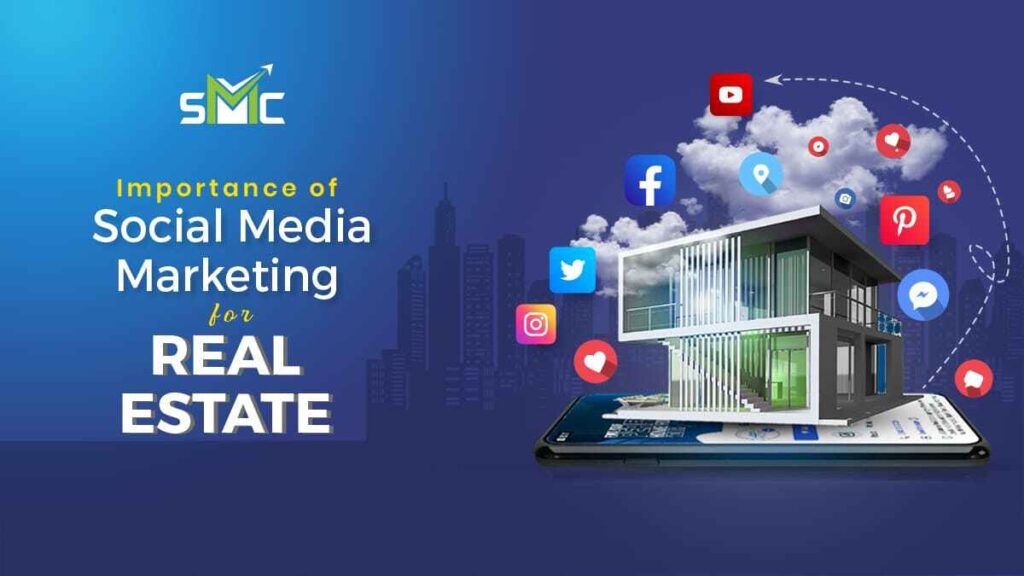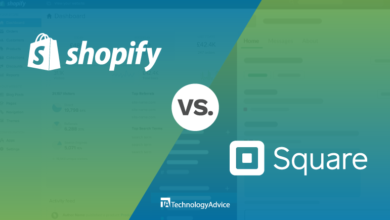Real Estate Agents: Master Social Media Marketing Strategies

In today’s rapidly evolving market, mastering social media marketing strategies has become crucial for success in almost any field, especially in the real estate sector. For real estate agents, unlocking the potential of social media holds the key to expanding their real estate social network, enhancing their visibility, and ultimately, closing more deals. Our understanding of these platforms and how to effectively leverage them can significantly impact our ability to connect with clients and stand out in a crowded marketplace.
In this article, we’ll guide you through the essential steps and considerations for optimizing your presence on social media. We’ll delve into choosing the right platforms that resonate most with your target audience, crafting engaging content that captures interest, and the best practices for posting and scheduling to ensure maximum engagement. Furthermore, we’ll explore the advantages of leveraging paid advertising to extend your reach and the importance of analyzing and adjusting your strategies for sustained success. Join us as we navigate the landscape of social media marketing strategies tailored specifically for the real estate realm, aiming to empower you to build a stronger, more connected real estate social network.
The Importance of Social Media for Real Estate Agents
In our journey to master social media marketing strategies, we must understand the pivotal role social media plays for real estate agents. By harnessing the power of these platforms, we can significantly enhance our market presence, connect more effectively with potential clients, and ultimately drive our business success.
Increased Visibility

One of the foremost benefits of social media for us, as real estate agents, is the increased visibility it offers. By actively engaging on platforms where our target audience spends their time, we can showcase our listings, share insights on market trends, and highlight our expertise in the real estate domain. This not only helps in attracting new clients but also keeps us top of mind among existing connections.
Targeted Advertising
Social media platforms offer robust tools for targeted advertising, allowing us to tailor our marketing efforts to the specific demographics, interests, and behaviors of our potential clients. This precision leads to higher efficiency in our advertising spend, ensuring that our message reaches those most likely to be interested in the properties we are offering. By carefully crafting our ads and selecting appropriate targeting options, we can maximize the impact of our advertising campaigns.
Building Relationships
Beyond advertising, social media is a powerful tool for building and nurturing relationships with clients. Through regular updates, responsive communication, and engaging content, we can create a sense of community and trust around our brand. This relationship-building is essential, as it fosters loyalty and encourages word-of-mouth referrals, which are invaluable in the real estate industry.
By focusing on these key areas, we can leverage Social Media Marketing not just as a tool for promotion, but as a fundamental part of our strategy to connect with clients, build lasting relationships, and grow our business in the competitive real estate market.
Choosing the Right Platforms
Facebook remains a powerhouse for us as real estate agents due to its extensive user base and robust marketing tools. With 190 million active users in the US and 2.85 billion worldwide, it’s the platform with the most extensive reach 1. The built-in marketing tools allow us to target specific demographics and neighborhoods, making it an essential tool for connecting with potential clients. Additionally, two-thirds of Facebook users visit a local business page at least once a week, providing a unique opportunity to create and maintain relationships with repeat visitors.

Instagram’s visual nature is perfect for showcasing properties and engaging with a younger demographic. With 112 million active users in the US, it offers a significant platform for real estate marketing. The platform’s features, such as local targeting, carousel ads, and hashtags, help draw new people to our listings. Furthermore, 6 out of 10 people visit Instagram at least once per day, spending an average of 53 minutes engaging with content, which is crucial for keeping our audience engaged and interested in our offerings.
LinkedIn is an invaluable platform Social Media Marketing for building professional networks and connecting with potential clients, especially those in the market to buy a home. It’s used by 37% of US adults aged 30 to 49, a key demographic for real estate purchases. The platform allows for effective B2B networking and has a higher lead conversion rate compared to other social media, making it an excellent choice for real estate agents looking to expand their professional reach and credibility.
YouTube
As the second-largest search engine in the world, YouTube offers a vast potential audience for our real estate videos. With over 2.7 billion monthly active users, the platform allows us to create engaging visual content that captures the attention of potential buyers. The SEO benefits are significant since YouTube is owned by Google, which can improve visibility in search results. Additionally, we can use YouTube to provide virtual property tours, which are increasingly important in today’s market.
TikTok
TikTok has emerged as a powerful platform for reaching a wider audience, especially younger adults. Its unique algorithm promotes content discovery, making it easier for our real estate videos to reach potential clients who are interested in buying or selling properties. By creating engaging and fun content, we can increase our brand recognition and connect with a demographic that is becoming increasingly relevant in the real estate market.
Creating Engaging Content
High-Quality Photos and Videos
We understand the importance of first impressions. That’s why we focus on capturing high-quality photos and videos that make potential buyers stop and take notice. Utilizing the best times of day for shooting, such as the golden hours, ensures our photos highlight the stunning aspects of each property. We also invest in the right equipment, from high-quality cameras to tripods and lighting, to ensure every image and video we produce is polished and professional. Additionally, embracing advanced techniques such as wide-angle shots and careful editing adds a layer of professionalism that sets our listings apart.
Storytelling Techniques
In our content, we harness the power of storytelling to engage and connect with our audience on a deeper level. We craft narratives around the personal journeys associated with each property, making our listings not just homes but stories of potential life experiences. By focusing on the emotional aspect, we create content that is memorable and impactful, ensuring it sticks with our audience long after they’ve seen it. This approach not only enhances the attractiveness of our properties but also builds a personal connection with potential buyers, making our real estate offerings uniquely compelling.
User-generated Content
Incorporating user-generated content (UGC) has proven to be a game-changer in how we interact with our audience. By encouraging our clients to share their experiences through reviews, testimonials, and Social Media Marketing interactions, we tap into a level of authenticity and trust that traditional marketing cannot achieve. For instance, video testimonials and client reviews are prominently featured in our campaigns, providing social proof that resonates with prospective clients 5. We also create interactive content like polls and contests to engage our audience, making them active participants in our marketing narrative. This strategy not only boosts our visibility but also significantly increases engagement and trust within our real estate social network.
Best Practices for Posting and Scheduling
Consistency is Key
We’ve found that consistency doesn’t necessarily mean posting every day but committing to a specific posting frequency and sticking to it. This approach helps in building meaningful relationships with our audience, as regular posting provides more opportunities for engagement. It’s essential to set a frequency that aligns with our schedule, even if it starts with 1-2 posts per week, and then adjust as needed based on the engagement and growth of our social network.
Optimal Posting Times
Understanding the best times to post on various platforms can significantly enhance our engagement rates. For example, the optimal times for posting on Facebook are in the early afternoon on Thursdays and Fridays. However, Twitter shows high activity around lunchtime and at the end of the workday during weekdays. Scheduling posts during these peak hours ensures that our content has the highest chance of visibility and interaction. We use tools like Facebook’s scheduling feature to plan our posts during these times, which helps in maintain a consistent presence without needing to be online at every peak moment.
Utilizing Social Media Management Tools
To streamline our social media efforts, we leverage several management tools. Tools like Buffer and Hootsuite allow us to schedule posts across multiple platforms like Facebook, Instagram, Twitter, LinkedIn, and Pinterest. These tools not only help in scheduling but also provide valuable insights through comprehensive statistics reports, making it easier to measure the effectiveness of our strategies. By using these tools, we ensure that our social media management is efficient and effective, allowing us more time to focus on other critical aspects of our real estate business.
Incorporating these best practices into our social media strategy ensures that we maintain a consistent, engaging, and professional presence online. This not only helps in building our brand but also significantly contributes to our overall marketing success in the real estate industry.
Leveraging Paid Advertising
Ad Types and Objectives
We’ve discovered that leveraging paid advertising on Social Media Marketing can significantly amplify our reach and engagement. By using targeted ad types like carousel ads, which allow showcasing multiple listings, and video ads for virtual tours, we can cater to the specific interests of our audience. Additionally, setting clear objectives for each campaign, such as lead generation or brand awareness, helps us align our strategies with our business goals effectively.
Targeting Specific Demographics
Targeting the right demographics is crucial for the success of our paid campaigns. We use Facebook’s detailed targeting options to zero in on specific groups such as first-time buyers, move-up buyers, and active adults, each with distinct needs and preferences. By adjusting our targeting parameters by location, age, and interests, we ensure that our ads are seen by the most qualified audience, thereby increasing the likelihood of conversion.
Measuring ROI
Measuring the return on investment (ROI) from our social media campaigns is essential to validate the effectiveness of our strategies. We track metrics such as impressions, reach, clicks, and conversion rates to gauge performance. By analyzing these metrics, we can adjust our campaigns in real time to optimize for maximum ROI. Additionally, understanding the sales cycle length and comparing it across different channels helps us refine our approach and allocate our budget more effectively.
By focusing on these key areas within our paid advertising strategies, we ensure that every dollar spent contributes to our overarching goal of connecting with potential clients and growing our real estate business.
Analyzing and Adjusting Your Strategy
Using Analytics Tools Social Media Marketing
We invest in quality analytics tools that offer comprehensive insights into market trends and campaign performance. These tools allow us to dissect vast amounts of data, revealing insights about market dynamics, such as emerging trends across different regions or customer preferences. This level of analysis enables us to anticipate market shifts and tailor our marketing messages to align with potential buyers’ or sellers’ expectations.
Monitoring Engagement Rates
Engagement metrics are crucial for us to understand the effectiveness of our content on platforms like Instagram Reels. By monitoring likes, comments, shares, and saves, we gain insights into our audience’s interactions. Additionally, tools provided by platforms help us track impressions and conversion metrics, which are essential for refining our engagement strategies and maximizing reach, audience growth, and lead generation.
Making Data-Driven Decisions Social Media Marketing
The power of data extends to optimizing our marketing strategies. By regularly reviewing performance metrics such as engagement and conversion rates, we make informed decisions that enhance the effectiveness of our campaigns. Predictive analytics also play a crucial role by forecasting future market movements and buyer behavior, allowing us to position our properties and marketing messages strategically for maximum impact.
By embracing these analytics and monitoring practices, we continuously refine our strategies based on data-driven insights. This not only helps in aligning our marketing efforts with market demands but also ensures that our resources are focused on the most productive areas, thereby enhancing our overall marketing success in the real estate industry.
Conclusion
Throughout this article, we’ve navigated the intricate tapestry of social media marketing strategies pivotal for real estate agents venturing into the digital arena. By dissecting the nuances of selecting the appropriate platforms, generating engaging content, and the tactical scheduling of posts, we laid a foundation aimed at amplifying visibility and forging stronger connections within the real estate sector. The exploration of leveraging paid advertising and the critical analysis of strategy effectiveness further equip real estate professionals with the tools necessary to thrive in a competitive marketplace, thereby enhancing their capability to connect with a broader audience and secure potential clients more efficiently.
Emphasizing the importance of a meticulously crafted social media strategy underlines the article’s thesis: that adept utilization of digital platforms is not merely an option but a necessity for real estate professionals aiming for success in today’s digital age. By integrating best practices, embracing analytics for strategy refinement, and fostering genuine connections through these digital mediums, real estate agents are poised to significantly bolster their market presence and business growth. As the digital landscape evolves, staying irrespective of trends and adjusting strategies accordingly will be paramount for those looking to sustain success and drive forward in the real estate domain.
FAQs
1. What are effective social media marketing strategies for real estate agents?
Here are our top 15 social media marketing tips for real estate agents:
- Set clear social media goals.
- Take advantage of each platform’s strengths.
- Keep your branding consistent across platforms.
- Automate social media posts.
- Make your posts easy to share.
- Promote informative, on-brand content.
2. Can social media benefit real estate agents?
Social media has tremendous power specifically for real estate. Leveraging social media provides increased visibility and reach: Agents can reach potential buyers and sellers beyond their immediate network, expanding their visibility and increasing the likelihood of attracting qualified leads.
3. How can a realtor effectively promote themselves on social media?
Real Estate Social Media Marketing
- Promote the town, not just the house.
- Be yourself.
- Educate your buyers.
- Chat with your followers.
- Respond to comments, good and bad.
- Avoid simply shouting about your home listings.
- Don’t forget the video.
- Never assume you’re only connecting with first-time buyers.
4. What percentage of real estate agents use social media for marketing?
According to data from the National Association of Realtors, 63% of realtors use social media mainly to post property listings in their real estate business.
Read More: DXN Network Marketing Business





